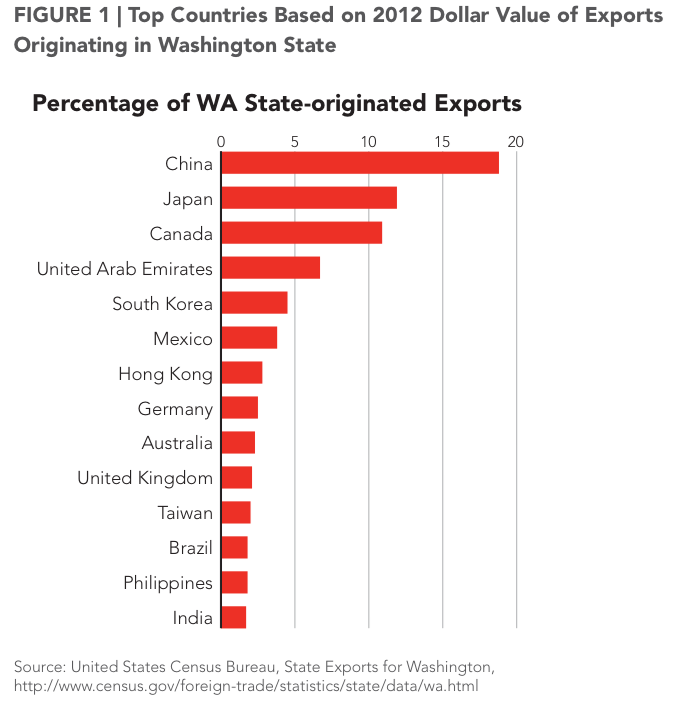WASHINGTON STATE FARM BUREAU
Executive Summary
This study discusses how the proposed investments in bulk commodity terminals at Cherry Point and Longview can result in increased real income levels for residents of Washington State and, by extension, in other parts of the United States. The particular focus of the report is on the incentives to expand created for upstream industries that are likely users of the largest facilities, the Gateway Pacific and Millennium terminals. Industrial expansion should result in higher incomes for factors of production in the expanding industries, as well as lower prices for consumers of the products of those industries. Existing studies of the Gateway Pacific and the Millennium Terminal Projects focus on the on the employment and income created by the construction and operation of the terminals, as well as the induced spending created by this additional employment and spending. The economic consequences of lower transportation costs on exporters and importers have been generally ignored or understated in the debate surrounding the terminals. While this study does not offer quantitative estimates of the economic effects of lower transportation costs on the Washington State economy, it argues that these effects are likely to be substantial and fairly widespread throughout the state’s economy. As a result, economic impact studies of the two facilities likely underestimate their total economic benefits to Washington.
Focusing on the upstream economic effects of the Gateway Pacific and Longview terminals at the state level obviously understates the national economic benefits of new and more efficient seaport alternatives. A complete analysis of the impacts of the terminals on industries using those terminals, as well as on suppliers to and customers of those industries should encompass the country as a whole. However, Washington State residents are presumably concerned first and foremost with the economic welfare of their own state. In this regard, there may be a temptation to infer that beyond those who construct and work at the terminals, the only other possible economic beneficiaries of the new terminals are affiliated with the coal industry. Since coal production takes place outside of Washington, the inference might lead to a conclusion that Washington will enjoy no upstream-related economic benefits. This study argues against this conclusion.
The prospect of freer trade between the United States and the fast growing Asia-Pacific region provides Washington State with a unique opportunity to become economically wealthier by intensifying its long-standing competitive advantage as a gateway for trade between the United States and its Asian trading partners. Beyond the additional jobs and income associated with facilitating increased shipments of imports and exports, economic wealth in the state will be created by the expansion of domestic industries, particularly agriculture.
Read full report (PDF) here: Coal Exports from the Pacific Northwest
About the Washington State Farm Bureau
http://www.wsfb.com/
“Farm Bureau is a voluntary, grassroots advocacy organization representing the social and economic interests of farm and ranch families at the local, state and national levels. By providing leadership and organizational skills, Farm Bureau seeks to gain public support on the issues affecting farm and ranch families.”
Tags: Coal Exports, Economy, Growth, Pacific Northwest, Washington State Farm Bureau







 RSS Feed
RSS Feed